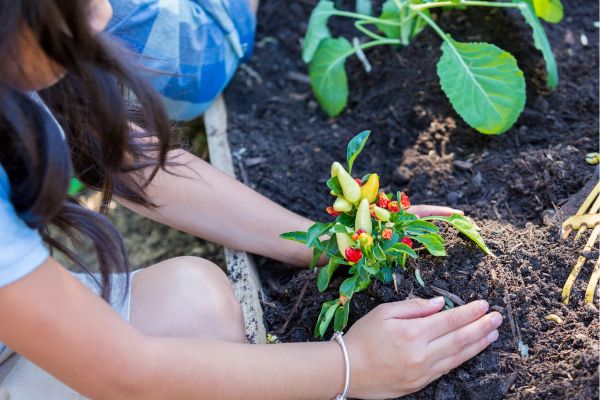Natural Learning Opportunities
In the rapidly evolving landscape of education, the natural environment presents itself as a boundless canvas for fostering profound and immersive learning experiences. Homeschooling, in particular, has the unique potential to leverage the natural world as a dynamic platform for nurturing comprehensive educational growth. This article embarks on a journey to explore the intrinsic significance of incorporating the natural environment into the homeschooling curriculum, emphasizing the manifold opportunities it provides for learners to engage with their surroundings actively and develop a deep-rooted connection with the world around them.
Embracing the Natural Classroom
Understanding the Power of Environmental Integration in Education
The environment, with its rich biodiversity and intricate ecosystems, serves as a powerful catalyst for immersive learning experiences. By incorporating the natural world into the educational framework, learners can grasp complex concepts through hands-on exploration, fostering a profound understanding of various academic disciplines while nurturing a genuine appreciation for the wonders of nature.
The Role of Nature in Holistic Learning
Beyond the traditional confines of academic subjects, the natural environment plays a vital role in nurturing holistic development. Activities such as nature walks, ecological observations, and environmental projects enable learners to develop a comprehensive understanding of environmental interconnectedness, fostering empathy and cultivating a sense of responsibility towards preserving the natural world.
Unlocking Experiential Learning Opportunities
Cultivating Environmental Stewardship
Integrating environmental education into the homeschooling journey instills a sense of environmental stewardship from an early age. By emphasizing the importance of conservation and sustainable practices, learners develop a profound sense of responsibility, actively participating in the preservation of the environment for future generations.
Fostering Hands-On Exploration and Discovery
Engaging with the natural environment encourages hands-on exploration and discovery, enabling learners to develop critical thinking skills and problem-solving abilities. By fostering activities such as gardening, nature-based experiments, and ecological restoration projects, homeschooling instills a sense of empowerment and self-discovery within learners.
Maximizing Learning Through Nature-Based Activities
Implementing Nature-Centric Lesson Plans
Incorporating nature-based activities and projects into the homeschooling curriculum provides a unique avenue for enhancing the learning experience. From ecological studies to understanding the impact of natural phenomena on the environment, learners can develop a comprehensive understanding of various scientific principles through practical application and direct observation.
Nurturing Creativity Through Environmental Exploration
Encouraging creative expression through environmental exploration fosters a sense of wonder and curiosity. By allowing learners to express their understanding of nature through art, photography, and creative writing, homeschooling ignites a passion for artistic expression and nurtures a deep connection with the natural world.
Building a Foundation for Lifelong Learning
Instilling a Love for Environmental Inquiry
By integrating the natural environment into the homeschooling curriculum, educators foster a lifelong love for environmental inquiry and scientific discovery. By nurturing an appreciation for the intricate workings of the natural world, learners develop a curiosity-driven mindset that fuels continuous learning and exploration.
Creating Lasting Connections with Nature
Embracing the natural environment as an educational resource cultivates lasting connections between learners and the world around them. By instilling a profound understanding of ecological principles and the interconnectedness of all living things, homeschooling fosters a sense of belonging and responsibility towards preserving the environment for future generations.
In conclusion, the integration of the natural environment into the homeschooling curriculum serves as a powerful tool for fostering comprehensive and immersive learning experiences. By leveraging the wonders of nature, homeschooling nurtures a profound appreciation for the environment, instills a sense of responsibility, and fosters a lifelong love for learning and exploration. Embrace the myriad opportunities provided by the natural world, and embark on an educational journey that extends beyond the confines of a traditional classroom, cultivating a generation of environmentally conscious and curious learners.







Be First to Comment